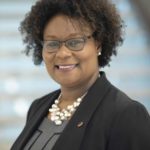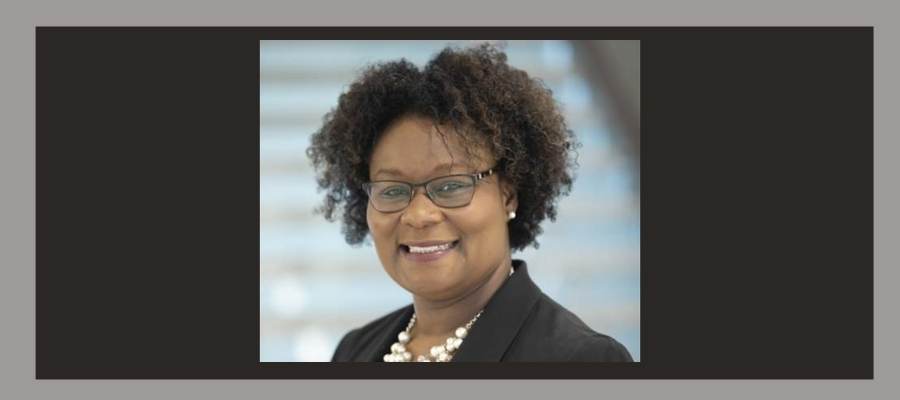As we continue the discussion on systemic racism, privilege, and power in our country, I asked one of the great Black leaders in our field to share her thoughts and ideas with us. Dr. Valarie B. Fleming is Professor and Chair of the Department of Communication Disorders at Texas State University.

Author: Dr. Valarie B. Fleming
Race, privilege, and power, words that do not appear in the “Big 9” areas of knowledge and skills needed for certification for future speech-language pathologists or audiologists. These words do not appear in any of our documents that we hold sacred in our profession. Not in our Scope of Practice in Speech-Language Pathology (ASHA, 2016b) (race is mentioned in the Scope of Practice in Audiology) and not in the Vision or Mission statements for the American Speech-Language-Hearing Association (ASHA),
In the ASHA Code of Ethics (ASHA 2016a), there are the non-discrimination statements (Principle I-C and IV-L) as well as the mention of “power” related to sexual relationships (Principle IV-H) and “power” in the no harassment statement (Principle IV-G). While I have seen and heard countless experiences with racism by colleagues and students of color in this profession and have had people to confirm that they have faculty members that should not be interacting with students due to their racist beliefs, I have yet to see a single certified individual sanctioned for violations of any of those Principles of Ethics related to racists behaviors. But I digress….
We do have the allusion to and/or a brief overview of these topics in what we like to call “cultural competence” (Practice Portal- Professional Issues), but for the most part, the specific topics of race, privilege, and power in communication disorders are nearly non-existent. Very recently, ASHA published a position paper (ASHA, 2020) in which it condemned racism in response to an outcry from the membership for a stronger statement (Pietranton, 2020).
Prior to this occurrence, one could graduate from an accredited program, pass the national exam, complete their clinical fellowship, and never have had a deep and meaningful discussion of race, privilege, and power. Many may ask, “why this is important”? “What do race, privilege, and power have to do with communication sciences and disorders”? We all are privileged in some way, but privilege related to race (i.e., white privilege) impacts resource allocation. In a profession that is 94% white, we must be aware that the people we serve are impacted by race, privilege, and power. Not having privilege puts our clients at higher risk for health and educational inequities, health and educational disparities, and poorer health and educational outcomes (Harris, 2013). To attempt to become more culturally competent clinicians, we will have to dig deeper as a profession.
I would like to challenge my beloved profession to start these profound conversations.
- I enjoy seeing the visual support that various speech-related companies are putting out, but what I want to know is, what is the racial/ethnic composition of your board, your governing body, your faculty, your upper administration etc.? That is more revealing as to how you view race, privilege, and power, more than any statement you can post on social media.
- No matter your work setting, make sure that you consider the role of race, privilege, and power. Be it policies, procedures, admissions, whatever. Ask the hard questions.
- Prepare student clinicians to acknowledge their privilege and advantages and ask why they have them and what can they do to level the playing field.
- Truly engage in actionable items that move the needle on diversity, equity, and inclusion in our profession. Go beyond statements of support of Black professionals, students, and clients. Go beyond simple statements of condemnation of racism. Be a part of the solution.
References
American Speech-Language-Hearing Association. (2016a). Code of Ethics [Ethics]. Available from www.asha.org/policy.
American Speech-Language-Hearing Association. (2016b). Scope of practice in speech-language pathology [Scope of Practice]. Available from www.asha.org/policy/.
American Speech-Language-Hearing Association. (2020). Response to Racism [Positions Statement].
Harris, J.L. (2013). Coordinator’s Column. Perspectives on Communication Disorders and Sciences in Culturally and Linguistically Diverse (CLD) Populations, 20(2), 37-38.
Pietranton, A.A. (2020, June 2). Email.
A Response: Racial and Ethnic Diversity in Speech-Language Therapy





I’m a professor at California State University Northridge. Two courses I teach require me to discuss the topics of the impact of dialect and second language acquisition on “typical” language development. Since the George Floyd murder, I’ve begun working hard to educate myself to better understand the influence and meaning of concepts like racial privilege, racism, anti-racism, systemic racism, and diversity. This has left me feeling uneasy about viewpoints I’ve held and taught in the past about the topic of dialect and second language acquisition. I’ve always been absolutely clear that both dialects and second-language-influenced variants of English are in no way “inferior,” “less complex,” or “pidgin” forms of a “standard” (“correct”) variant of English. What I have taught is that variants of the “standard” (or “general”) form of American English may pose barriers to educational, vocational, social, and professional advancement and that dialect and second language learners are owed a quality education that provides access to proficiency in the “standard” (“general”) form as a separate tool for specific, relatively formal, communicative purposes. I’m beginning to be concerned, however, that such a view may no longer be appropriate. I’d really appreciate any advice, guidance or resources you can suggest. Many thanks.
Hi Dr. Elliott, I also have been working hard to educate myself on these initiatives. I think it is so important that we all realize that we have a lot to learn and a lot of work to do. I would love for Dr. Fleming to have the opportunity to reply to your questions and comments. I have reached out to her. Best, Ellen
Hi Reed, Dr. Fleming sent the following response to your comment.
Dear Professor:
One of my favorite quotes by Dr. Maya Angelou, “Do the best you can until you know better. Then when you know better, do better.” This quote is fitting for this situation. Thank you for trying to educate yourself to better understand the concepts of racial privilege, racism, anti-racism, and such. It is not easy work. Your views on dialect and second-language-influence variants as stated are correct in that they are not inferior or less correct, but the uneasiness you feel may be rooted in the bias (conscious or unconscious) that many CSD and educational professionals hold in that it is the value placed on the speakers who use these variants. You have taught that, “variants of the “standard” (or “general”) form of American English may pose barriers to educational, vocational, social, and professional advancement.” My question is why, when everyone speaks a dialect, that the varieties spoken by BIPOC individuals, pose barriers? That is where the uneasiness stems from. People are now beginning to question the systems that are in place in mainstream American culture that are steeped in the belief that the use of dialect or other forms other than standard American English, are somehow inferior or subpar rather than being celebrated as a cultural difference that adds to the tapestry of our country. From K-12 to higher education settings and beyond, students are told that they cannot bring their authentic selves to their academic culture, thus making them feel excluded from their own education. A recent Leader article by Dr. Latimer-Hearn, Don’t Get It Twisted-Hear my Voice (https://leader.pubs.asha.org/doi/full/10.1044/leader.FTR2.25012020.54) is full or resources and places to get started.
i have certainly been championing the cause for some time now! not just in the slp arena, but in the public educational system, as well.
Glad to hear it and keep it up!